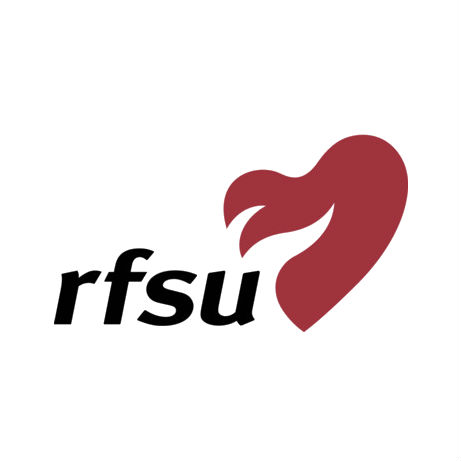

| 31 March 2016
Riksförbundet för Sexuell Upplysning - Sweden
Founded in 1933, RFSU is a non-profit membership organization aiming to promote access to sexual and reproductive health and rights — both in Sweden and internationally. RFSU has 16 local branches in Sweden and a sexual health clinic in Stockholm, also providing an invaluable source of learning for the organisation. In addition, we own a company that makes and sells condoms and wide range of products for sex, pleasure and health. To achieve our vision, of a world in which everyone is free to make decisions over their own bodies and sexuality, RFSU combines several strategies: Expertise and evidence-based knowledge and information, clinical research and global studies on SRHR lay a foundation for a solid argument for SRHR. Extensive experience in comprehensive sexuality education – guarantees the most pedagogical methods for strengthens SRHR and enhance public support for SRHR for all. Global influence and local partnerships. RFSU advocates and influences shaping the political agenda on gender equality (as well as SRHR) in Sweden and internationally. Much of this work is done with partners - for us, partnership is a fundamental way of working. We channel support to civil society organisations in a number of countries (Bolivia, Kenya, Ghana, Liberia, Georgia, Cambodia, Bangladesh, Sri Lanka) and with regional networks in Asia, Africa and Latin America. We also work with organisations and networks in Brussels, Geneva and New York to secure strong support for SRHR in international agreements, and to ensure their implementation.

| 31 March 2016
Family Planning Association of Nepal
Established in 1959. the Family Planning Association of Nepal (FPAN) is Nepal's first national family planning service delivery and advocacy organization. It is a major collaborator of the Government of Nepal's national sexual and reproductive health (SRH) program, contributing a greater percentage of all SRH services in Nepal annually. FPAN serves Nepalese people in 44 districts, focusing on the poor, marginalized, socially excluded and underserved (PMSEU) populations, which include female sex workers, people living with HIV (PLHIV), LGBTIQ people, injecting drug users, men who have sex with men (MSM), migrant workers, people with disabilities (PWD), survivors of gender-based violence (GBV), urban slum dweller and people affected by disaster and crisis. The mission of FPAN is to "champion a volunteer movement for increased provision of SRHR to all, particularly to those most at risk, marginalized, and under-served". The planned outcomes set by FPAN for the strategic planning period (2016-2022) include: Nepal Government respects, protects and fulfil sexual and reproductive rights and gender equality; Nepalese people empowered to act freely on their sexual and reproductive health and rights; a high quality integrated sexual and reproductive health services delivered; and a high performing, accountable and strong FPAN. The success of FPAN is due to its extensive and diverse network of service delivery points, as well as its expertly trained staff and volunteers who provide services in areas where they would otherwise be unavailable. FPAN provides an Integrated Package of Essential Services (IPES), which includes sexuality counselling, contraception, including emergency contraception, safe abortion, STIS/RTIs, HIV & AIDS, obstetrics, gynecological and sexual & gender-based violence services. These services are provided across 974 service delivery points (including 270 clinical SDPs, 22 family health clinics, 56 community health clinics, 75 associate clinics, 117 mobile teams, and 794 non-clinical service delivery points). FPAN provides approximately four million SRH services each year across its service delivery points, with family planning accounting for 40%, STIs/RTIs for 14%, gynaecological services for 12%, HIV services for 10%, and other services accounting for the remaining 24%. FPAN has eight clinical training centres that are connected to its family health clinics, which provide full range of family planning and reproductive health services. The training centres are accredited by the National Health Training Centre, (MoHP). These centres provide a variety of family planning and sexual and reproductive health training to health care providers from FPAN, government, and non-governmental organizations (NGO) health facilities.







